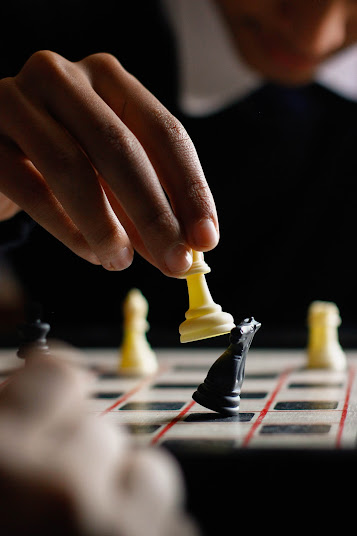Game Theory and the Magic of Chess
When I was growing up, my dad would tell me stories of the chess craze that swept North America, beginning when he was a freshman in high school.
At the time, everyone assumed all the great chess masters were — and would always be — Russian. It seemed like a game that involved a lot of brooding and required some very cold winters to make it an attractive entertainment option. People who had better things to do didn’t play chess.
Then along came Bobby Fischer. He not only made chess cool, but also played into the stereotype of a chess master as an eccentric and unpredictable savant. He focused, he dared, he triumphed and then abandoned it all. After a few years, he came back and started all over again.
By the time he became World Champion, chess clubs had spread in schools across the U.S. and beyond. My dad was one of the kids who was soon hooked, and by college was playing late-night tournaments in his dorm room.
Bobby Fischer ended up falling to a cascade of neuroses, and since that time chess has lost some of its trendy appeal; but I always remember my dad’s enthusiasm when he talked about chess. Not surprisingly, I too became hooked at a very early age.
So many years later, I can’t claim to be a master of the game. That’s one of the great things about chess: you don’t have to be. You can play at your own level. You can play for fun. You can play in the park, or on a family trip. You can play on a mahogany set or with tiny plastic pawns and rooks.
Chess only asks that you concentrate, have patience and think far into the future. That last part really appeals to me as an investor. In chess and in the financial world, every move you make has consequences down the line. The end game may be retirement, college or creating a nice nest egg, but in every case you’ve got to anticipate the long-term impact of your decisions.
They say most of the great chess players have extraordinary musical gifts. That’s not me, as my old piano teacher would surely testify. Yet, grand masters also have exceptional mathematical talents, and here is where I once again feel chess as a hobby is extremely relevant to investing as a profession.
I’ve always had a facility with numbers, and that skill is invaluable in calculating the geometries and vectors of chess. Every game is an equation, with a host of missing variables. Knights and bishops move in patterns of probability; the final victory is a “Q.E.D.” written boldly on a chalkboard.
Like investing, chess is also about risk and reward. Every player must choose whether to play daringly, or open with caution. The greatest success often comes from brilliant new strategies; but in the end it is the surrender of a king that will decide whether a game plan was genius or foolhardy.
Famed chess player Rudolf Spielmann once advised: “Play the opening like a book, the middle game like a magician, and the end game like a machine.”
However timid your opening gambit may be, and whether you ultimately win or lose, it’s the magic of chess that makes every game so enjoyable — and every player a champion.


